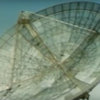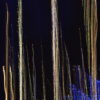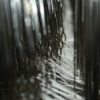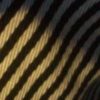Seminar Blogs

“Horizon of beats as measuring tools” – Freja Kir
This piece of writing is the first in a series of short blog posts reflecting on current perspectives for measuring transmissions in motions. The writings specifically draw on references and inspiration shared from a seminar of similar title hosted by the University of Utrecht. Throughout these written reflections my focus will be set on unpacking…
Read more
“Music is math, unfortunately” – Angelo Zinna
Despite the length of my relatively short-lived career as a student of literature, there is one recurring question I am confronted with on a regular basis that I have learned to answer without hesitancy. To those who inquire on whether investing years of one’s life reading (and, at times, rereading) novels, verse, and comics often…
Read more
“The ethical magician” – T.P.
Following from the notion that agents do not create the technical essence from which technology evolves, but do create the techniques that steer it, Jason Tuckwell identifies art as the sort of work that deviates. For Tuckwell, art’s activity is located specifically in the creative process in which technē (skillfull action) works upon a general…
Read more
“The Process Of Art As Wandering” – Anthony Nestel
How does art come to be? Aristotle reminds us that art is not an ontological problem, but rather a problem about causation. In his inspiring lecture Jason Tuckwell defines art as Techné – a skill or a technical capability to deviate processes of becoming. In contrast to poiesis – to make – techné doesn’t have…
Read more
“Art, Technē, and the Question of Aura” – Dennis Jansen
During his recent TiM lecture, philosopher Jason Tuckwell argues that Walter Benjamin’s Marxist analysis of material production in “The Work of Art in the Age of Its Technological Reproducibility” ([1936] 2008) is symptomatic of a more general tendency to reduce art solely to its mode of production, and thereby foregoes the question of how art…
Read more
“Art without an aura: Techne in the digital age” – Angelo Zinna
Jason Tuckwell’s lecture “Agency and technē in creative practice” drew attention to the role of technical skill in the production of art, questioning whether it is worth revisiting the traditional view of “art as aesthetics” rooted in the Platonic concept of poesis. By juxtaposing the “particular” character of technē to the “universal” essence of nature,…
Read more
“The question concerning technē” – Christl de Kloe
In the first Transmission in Motion seminar of this year called“Agency and Technē in Creative Practice,” Dr. Jason Tuckwell critiqued contemporary understandings of ‘the work of art’. He started by explaining that there are generally two ways of thinking about art which stem from the Greeks; the first is poiesis, where art is understood as…
Read more
“Function of Exploration” – Aishwarya Kumar
In his 2012 TedEd talk, marine biologist David Gallo illustrates the idea of exploration by stating that we, as humans have ‘explored’ only 5% of what is in the oceans. By exploration, he means to “go peek and see what’s there” and uncover, reveal, bring to the front, what was invisible or unknown[1] and that,…
Read more
“Craftsmanship as a Common: Discovering Intersections Between Science, Craft, and Performance” – Mavi Irmak Karademirler
For the final Transmission in Motion seminar, Prof. Dr. Roger Kneebone and Dusia Kneebone talked on the relationalities between medical practice and craftsmanship and pointed out to the potentials of them informing each other in terms of practice. Coming from a medical background and being a professor of anatomy, Professor Roger Kneebone also directs the…
Read more
“The Gesture of Letting Go” – Laura Jimenez Rojas
The last TiM seminar of this year “The Art of Performing Science” brought a new perspective to think of the meeting of two -apparent- separate worlds: art and medicine. Roger Kneebone, professor of surgical education and director of the Centre For Performing Science at Imperial College London, presented how by the gathering of artists and…
Read more
